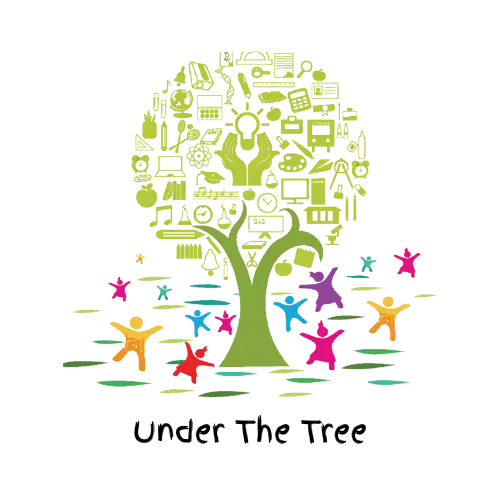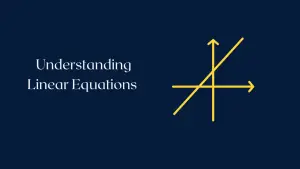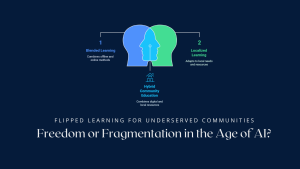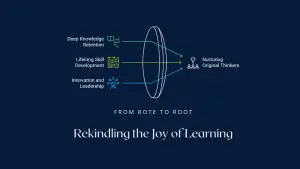“विवेकः सर्वत्र साधनम्।” (Vivekaḥ sarvatra sādhanam.)
“Discernment is the means for everything.
India, once a beacon of wisdom and learning, is now facing an urgent crossroads. With over 1.5 million schools and 250 million students, we have the largest education system in the world. Yet, our system is increasingly criticized for rewarding rote memorization over real thinking, theoretical knowledge over practical skills, and compliance over curiosity.
As we envision a future where India is one of the top three global economies, we must pause and ask: Are we preparing our children for that future — or for a past that no longer exists?
From Gurukuls to Grade Factories: The Journey So Far
Historically, Indian education was rooted in holistic development. From gurukuls to tols and pathshalas, learning was deeply integrated with life itself — spiritual, practical, and intellectual. But centuries of colonization and systemic erosion have transformed this rich heritage into a rigid, test-driven system that prepares students for marks, not meaning.
In today’s classrooms, children are still taught what to think — definitions, formulas, textbook facts — with little room to explore how to think independently, creatively, or critically. We’ve replaced curiosity with conformity.

The Two Buckets of Educational Reform
To revamp our education system, we must address two broad categories of issues:
1. Operational Challenges (Tactical Bucket)
These include underfunded schools, lack of access in rural areas, poor infrastructure, teacher shortages, and high dropout rates. Encouragingly, these are well-recognized, and various state-level initiatives are working to improve them.
2. Vision and Strategy (Transformational Bucket)
This is where the real revolution is needed — and it’s often ignored. We need a paradigm shift from an information-based system to a thinking-based system.

What Must Be Done?
🔹 Replace Rote with Reason
Our schools must prioritize analytical thinking, decision-making, and problem-solving over rote memorization. Project-based learning, open-ended questions, and real-life simulations should be the new normal.
🔹 Revamp the Curriculum
We’re still using 19th-century syllabi to prepare students for a world of AI, entrepreneurship, and digital disruption. A modern curriculum should include financial literacy, digital skills, environmental awareness, and socio-emotional learning.
🔹 Empower the Teacher as a Facilitator
Teachers must be re-trained to move beyond the “chalk-and-talk” method. They should encourage students to ask questions, explore possibilities, and develop independent viewpoints.
🔹 Dismantle the Exam Obsession
We need to de-emphasize board marks as the only metric of success. Assessments should be continuous, comprehensive, and competency-based — measuring how a child learns, not just what they remember.
🔹 Integrate Life Skills and Vocational Training
Every child should graduate with practical life skills — how to manage money, navigate the internet safely, resolve conflicts, and even cook a meal. Vocational education should not be an afterthought but a respected parallel path.
🔹 Foster Creativity and Curiosity
Our classrooms should celebrate originality. Art, music, storytelling, design, and hands-on innovation labs should find a central place in the learning process.
A New Vision: Jyoti EdLab’s Mission
At Jyoti EdLab, we believe real change begins at the grassroots. Through our community learning initiatives under Under The Tree, we are nurturing a new generation of thinkers, tinkerers, and trailblazers. Our approach focuses on:
- Activity-based and experiential learning
- Encouraging questions over answers
- Building emotional and social intelligence
- Promoting inclusive, joyful education
We do not just want to teach kids what to know, but how to think for themselves — to imagine, to create, to solve, and to grow.
Education as Liberation
The ultimate goal of education should not be to produce compliant workers but free thinkers — individuals capable of questioning the status quo, adapting to a fast-changing world, and leading with empathy and innovation.
If India is to reclaim its place as a land of wisdom and innovation, we must reimagine our education system from the ground up. Let us not prepare our children to fit into the world — but to shape it.
It is time we stopped asking our children to memorize definitions of fishing, and instead handed them the tools — and freedom — to fish in their own rivers.“सा विद्या या विमुक्तये।” (Sā vidyā yā vimuktaye.)
“That is knowledge which liberates.”
#JyotiEdLab #UnderTheTree #NewEducationPolicy #ThinkNotRote #21stCenturySkills #ChildCenteredLearning #MSMEStrategy #EducationReformIndia




